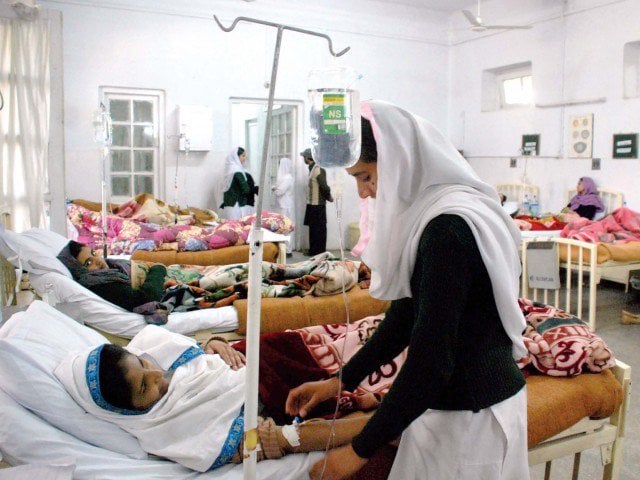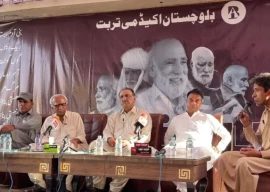
According to the health department, 350 beds have been allocated at Watim Hospital in Rawat, 20 in Quaid-i-Azam International Hospital, four in Jinnah Memorial, eight beds in Ahmed Medical Hospital, 10 in Bilal Hospital, four in Maryam Memorial, 10 in Heart International, eight at Bahria Town Hospital, 75 in Cantonment General Hospital (CGH) and 40 each in Railway Hospital and Social Security Hospital.
Punjab Primary and Secondary Health Secretary Muhammad Usman visited the related hospitals to inspect facilities.
On the occasion, he said that currently patients were receiving treatment on 774 of the 900 beds allocated for dengue patients in government hospitals. The secretary added that they would allocate more beds, if needed, in private hospitals of adjoining cities as well. Usman said that treatment of patients and curtailment of the deadly virus was their top priority.
Dengue count rises
Meanwhile, the number of dengue patients in Rawalpindi district has soared to 3,619 patients as hospitals have been overflown with dengue patients.
Health officials on Thursday said that up to 122 additional dengue patients were brought in from different areas over the past 24 hours.
As many as 74 patients hailed from Potohar Town, an epicentre for the dengue virus. Other cases had emerged from Rawal Town and different parts of the Rawalpindi Cantonment Board (RCB).
Further, some 220 patients in Benazir Bhutto Hospital (BBH), 265 in Holy Family Hospital (HFH) and 119 in District Headquarters (DHQ) Hospital have thus far tested positive for dengue.
However, the hospital administration said that treatment facilities were being offered according to Standard Operating Procedures (SOPs) of the dengue treatment plan.
Dengue at metro stations
The administration’s lax attitude with regard to the dengue virus has become a point of concern for passengers of Islamabad metro as all stations from IJP Road to Pak Secretariat have become breeding grounds for larvae.
The water tanks atop public toilets and elevators in the stations are breeding the deadly mosquitoes. Fearing the consequences, the citizens have stopped using them.
In this regard, the employees at related stations said that they had repeatedly informed related authorities to spray the area but they lent a deaf ear to it every time.
An employee, who did not wish to be named, told The Express Tribune that the virus carrying mosquitoes usually became active in warm weather conditions. He added that all metro stations in Islamabad were located in green areas while tank water was replaced daily and that clean water was ideal for larvae breeding.
“Even some of the employees fell sick due to mosquito bites but their salaries were deducted due to their absence,” he complained.
The Express Tribune also acquired a version of passengers travelling in the bus who complained that the spraying was last done two months ago.
The Federal Government Polyclinic's (FGPC) Mother and Child health care (MCH) Centre Aabpara on Thursday started receiving dengue patients at its 50-bed ward. Incharge MCH Centre Dr Sharif Astori said this dengue backup ward will share the load of patients at FGPC main hospital with a team of four doctors, 12 nurses and 16 para medical staff. He said medical team would remain on duty round the clock in this well-equipped ward having all the facilities of relevant tests for dengue. He said there will be 24-hour Dengue Outpatient Department (OPD) at MCH centre to receive the patients and give medical consultation.
Published in The Express Tribune, September 27th, 2019.






1732427746-0/Copy-of-Untitled-(2)1732427746-0-270x192.webp)










COMMENTS
Comments are moderated and generally will be posted if they are on-topic and not abusive.
For more information, please see our Comments FAQ